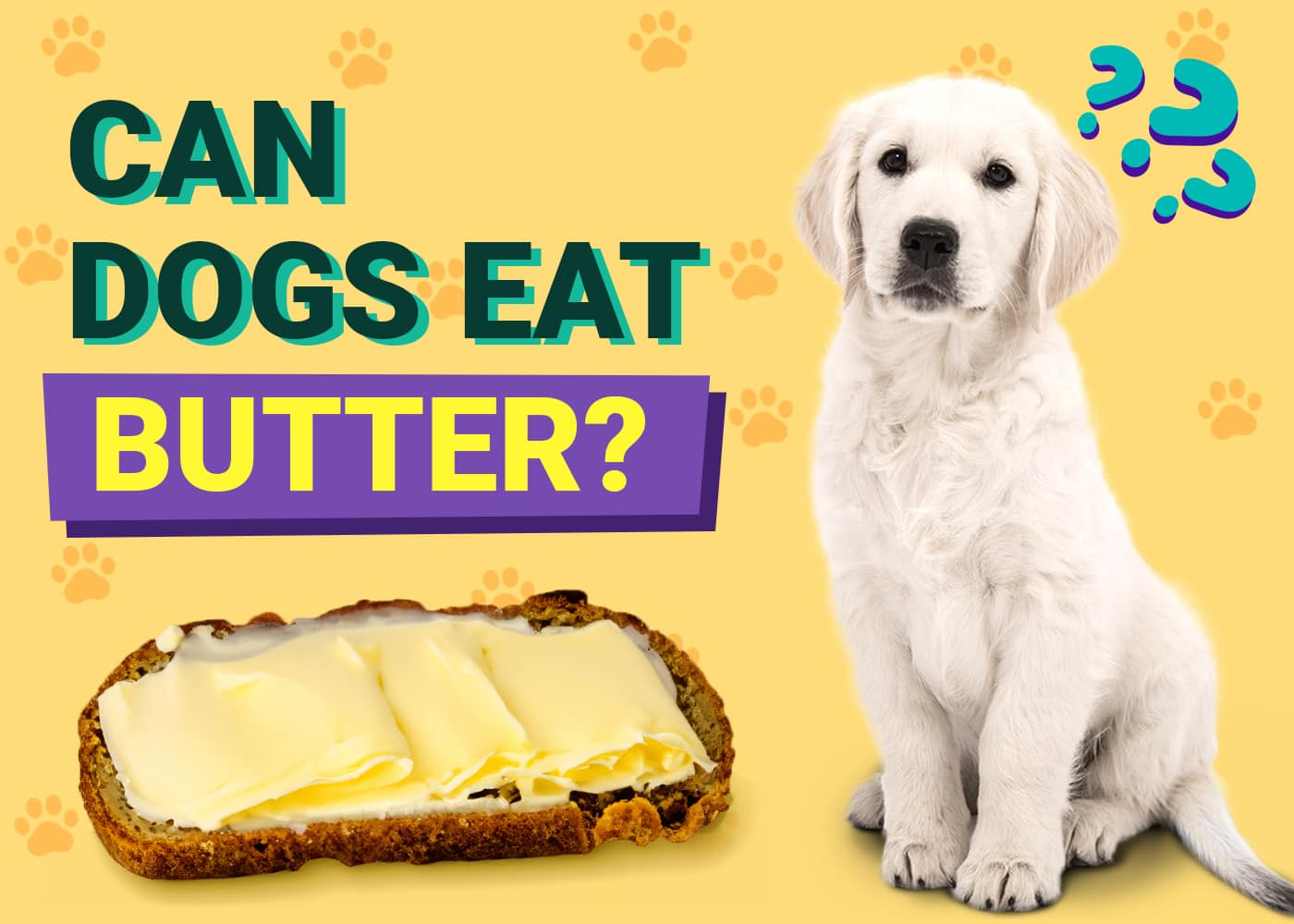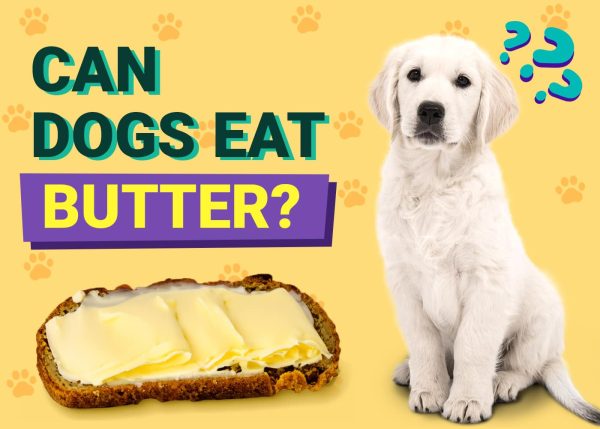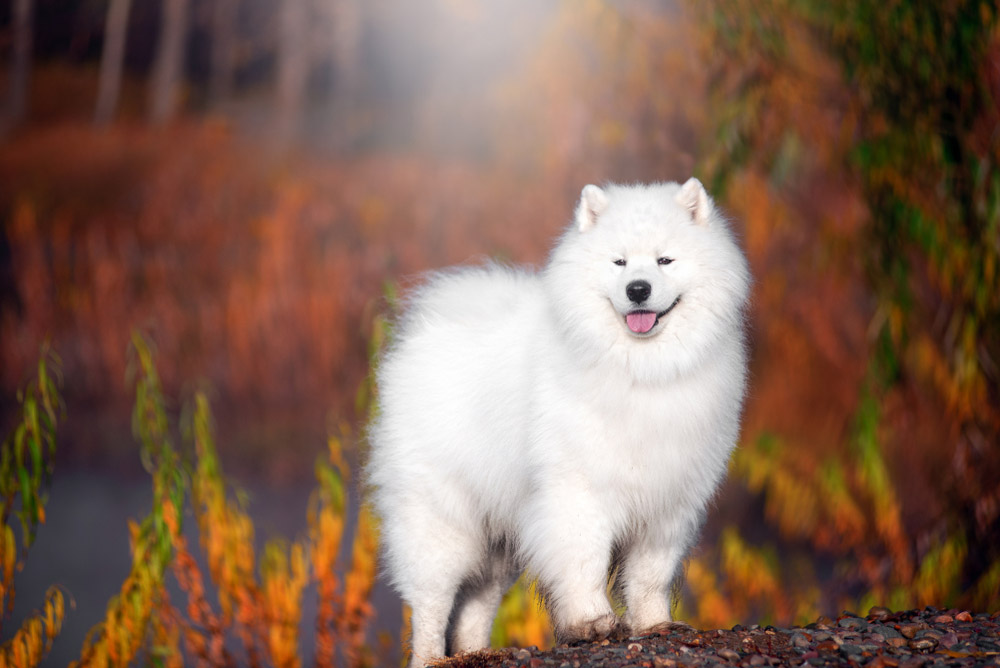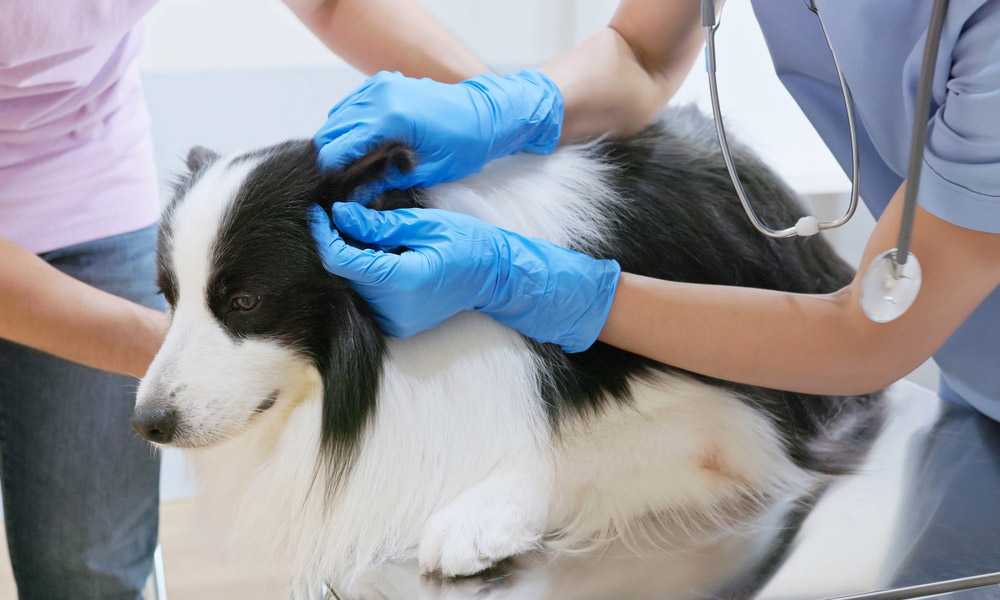It isn’t uncommon to feed your dog a bite or two from your own plate; our canine pals are always overjoyed to get a taste of what we’re eating! But not everything we like eating is healthy or safe for our pets to consume. A lot of people foods are incredibly unhealthy for our pups, and some are toxic and may cause irrevocable harm. So, it’s always vital to check that foods are safe for your dog before giving them to your pet.
One thing often found in the food we eat is butter. But can dogs eat butter? Yes, they technically can, but, as you are probably aware, butter is incredibly unhealthy for our pets. Milk fat, water, and salt, do not equal a healthy recipe for our dogs.

Is Butter Safe for Dogs to Eat?
Butter isn’t toxic to your dog, but it is unhealthy!
One of the most significant reasons for that is that butter is 50% saturated fat; that’s a lot! And saturated fats are just as unhealthy for dogs as they are for us.
Fatty foods and canines aren’t a good mix. In small amounts, they can cause mild diarrhea or vomiting. If your dog ingests a large amount of butter, they could end up experiencing gastroenteritis (inflammation of the intestinal lining) or pancreatitis (inflammation of the pancreas). Pancreatitis is a potentially life-threatening illness, so fatty foods like butter should be avoided.
Then, there’s the fact that the majority of dogs are lactose intolerant, so they can’t handle dairy products. Just a bit of butter could end with them being gassy or experiencing bloating and indigestion, so if your pet ate a bit of butter, keep an eye on them. Signs will likely be mild, but a vet visit will be in order if they are severe.
If dogs consume fatty ingredients like butter over a longer period of time, weight gain and obesity are likely to follow. Just like in humans, obesity will put your dog at risk of conditions that can seriously impact the quality and length of their life. Joint problems, cardiac disease, and spinal injury are just a few of the issues that can accompany canine obesity. So while a tiny lick of butter might not do any harm, if it becomes a regular thing, you could be doing your dog a huge disservice.
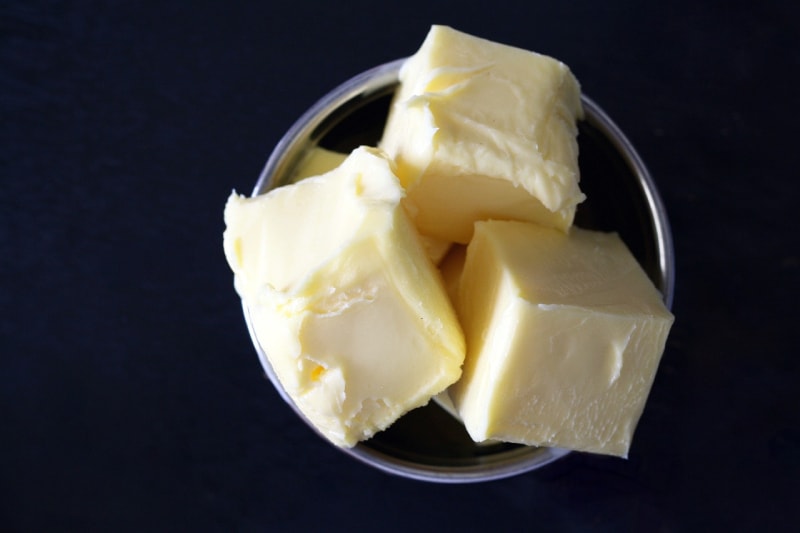
What to Do if Your Dog Eats Butter
If your pup has only eaten a tiny amount of butter, they should be fine. At most, they’ll likely suffer from some mild digestive discomfort because of the fat content and dairy in it.
However, if your dog has managed to eat a whole stick of butter, you should immediately contact your vet. That amount could be potentially dangerous, depending on the size of your dog, and your vet may recommend steps to reduce the absorption of it.
If your dog has eaten something quite buttery, you’re going to want to watch them carefully for signs of pancreatitis.
- Lethargy
- Eating less
- Vomiting
- Diarrhea (possibly with blood)
- Stomach pain
These pancreatitis signs can show up within the next four days of your pet eating too much butter. Call your vet or take your dog in for an exam if you see any of these, or if you are concerned about how much they may have eaten.
Final Thoughts
Though butter isn’t toxic to dogs, it’s incredibly unhealthy for them. Butter offers your pet no nutritional value, and instead provides them with way too much saturated fat, which can lead to problems like pancreatitis and gastroenteritis. Butter is also a dairy product, which may lead to mild vomiting and diarrhea in your pup, as most canines are lactose intolerant.
Overall, it’s best to avoid letting your pet eat butter or foods containing butter. Instead, stick with dog treats so you know what you’re feeding them is safe!
Featured Image Credit: rodeopix, Pixabay

